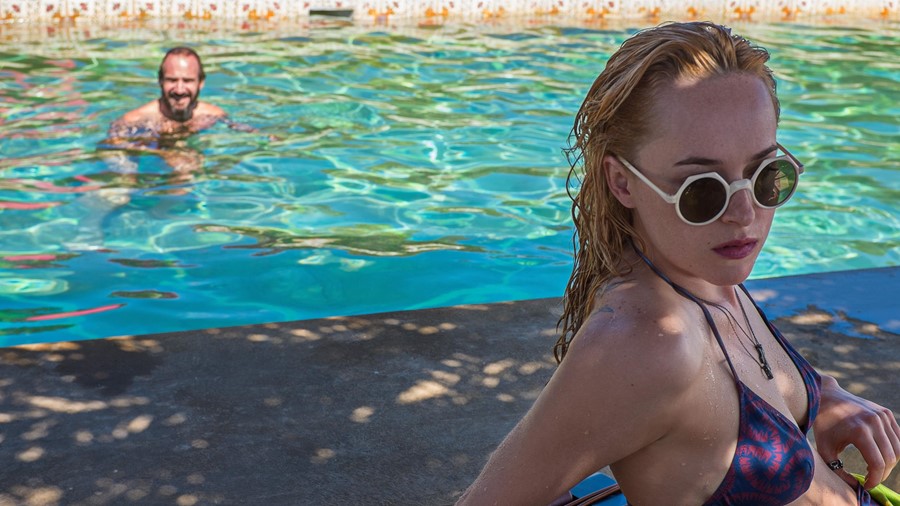From pioneering new works to older hidden gems; here are 20 of the best arthouse films to watch on Netflix UK right now
A Bigger Splash (Luca Guadagnino, 2015)
If you like your Luca Guadagnino sun-kissed and sensual you need to see A Bigger Splash, an erotically charged tale of spilling sexual passions from the Italian auteur and disrespecter of peaches. The A+ cast is on top form, too, from Ralph Fiennes’ exhibitionist record producer – whose Jagger-like moves are worth the price of entry alone – to Tilda Swinton’s serene rock goddess and Dakota Johnson’s Lolita-like turn as Fiennes’ mysterious daughter. Read more about the inspirations behind the film here.
All Quiet on the Western Front (Edward Berger, 2022)
Edward Berger’s adaptation of the classic WWI novel is an epic-scale vision that has hoovered up awards nods of late – it’s in the running for nine Oscars at the time of writing – while drawing criticism in Germany for playing fast and loose with the facts. Best known until now for his work on prestige television shows like The Terror and Deutschland 83, Berger brings terrible clarity to his account of young conscripts fighting to stay alive in the trenches during the final days of the war, mindful, perhaps, of the restive political mood in present-day Europe.
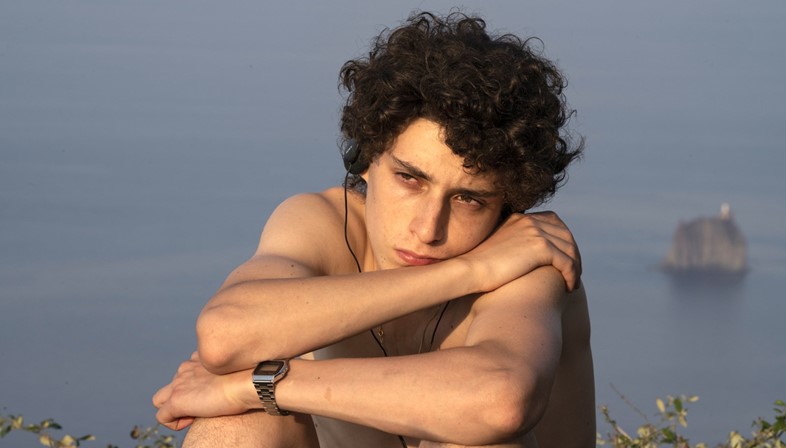
The Hand of God (Paolo Sorrentino, 2021)
For its first hour, The Hand of God is a colourful picaresque about a young man’s coming of age in 1980s Naples, with excitement at the signing of the world’s greatest footballer, Diego Maradona, reaching fever pitch across the city. Then, the unthinkable happens, and Paolo Sorrentino’s drama switches to a more sombre key as our protagonist fronts up to some important decisions about his future. This autobiographical drama from the director of The Great Beauty is a joy – visually lush, and tonally chaotic as only life can be. Read our interview with Sorrentino about the film here.
The Lure (Agnieszka Smoczyńska, 2015)
Agnieszka Smoczyńska’s surreal debut – think Hans Christian Andersen by way of David Lynch – is a horror-musical mashup about a pair of man-eating mermaids hired as singers in a Warsaw strip club. Is it a coming-of-age story? Migrant sex-worker fairytale? Trans allegory? Who knows, frankly, but we’re pretty sure Ariel never told Papa Triton she “was getting her legs and pussy done” in pursuit of her prince charming. Smoczyńska teamed with Laetitia Wright and Tamara Lawrence for her English-language debut, The Silent Twins, last year.
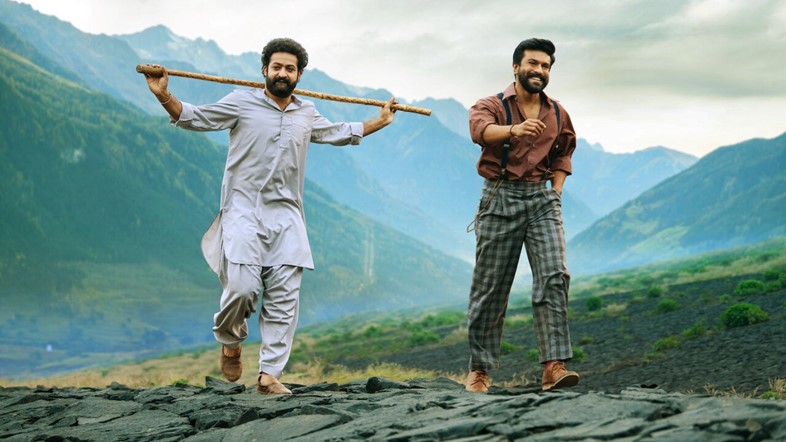
RRR (SS Rajamouli, 2022)
What to say about RRR? It’s the £50 million passion project of SS Rajamouli, director of three of India’s five highest-grossing films of all time, which trended worldwide on Netflix before snaring an Oscar nomination for one of its eminently TikTokable musical numbers, ‘Naatu Naatu’. But cold stats alone won’t steel you for this gonzo blend of Bollywood camp and Hollywood brawn, which pits real-life revolutionary figures from Indian history against the Raj in an imagined bromance for the ages. Question marks linger over the film’s politics – Indian prime minister Narendra Modi has been quick to jump on the hype train – but as sheer spectacle it’s dynamite, with Rajamouli marshalling the action like John Woo at his most irresistibly logic-defying.
The Falls (Chung Mong-hong, 2021)
A Taiwanese drama about the creeping psychosis of lockdown might not be everybody’s cup of tea right now, but Chung Mong-hong finds the right mix of horror and humanity in his tale of a teenage girl left to cope with her mother’s mental unravelling in the first months of the pandemic. Crisply lensed and delicately performed by its two leads, Alyssa Chia and Gingle Wang, it’s a compassionate film that offers healing balm for the shared trauma of lockdown.
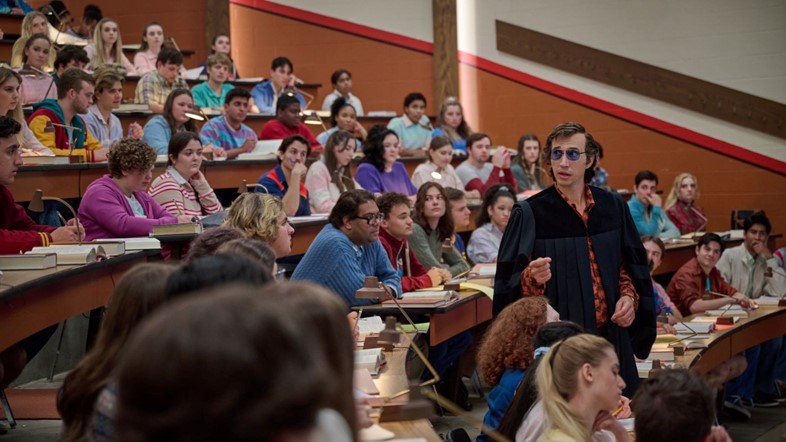
White Noise (Noah Baumbach, 2022)
Noah Baumbach’s follow-up to the most acclaimed film of his career, Marriage Story, was a spectacular folly that cost Netflix somewhere north of $100 million. To say not everything works in his adaptation of Don DeLillo’s great American novel is putting it mildly, but its satire of late 20th-century consumer culture malaise is shrewd and sporadically very, very funny, thanks in large part to Adam Driver’s typically on-point turn as a Hitler studies professor scared to death of dying.
Boiling Point (Philip Barantini, 2021)
Gordon Ramsay’s worst kitchen nightmare has got nothing on Boiling Point, Philip Barantini’s one-shot drama set in a high-end London restaurant run by a chef, Andy (Stephen Graham), on the verge of a nervous breakdown. The low-stakes premise does nothing to convey the amphetamine rush of anxiety Barantini’s film delivers, as Andy and his team fight to keep racist dads, obnoxious influencers and egocentric ex-bosses at bay over the course of one evening – that’s if they don’t end up tearing each other to shreds first, of course.
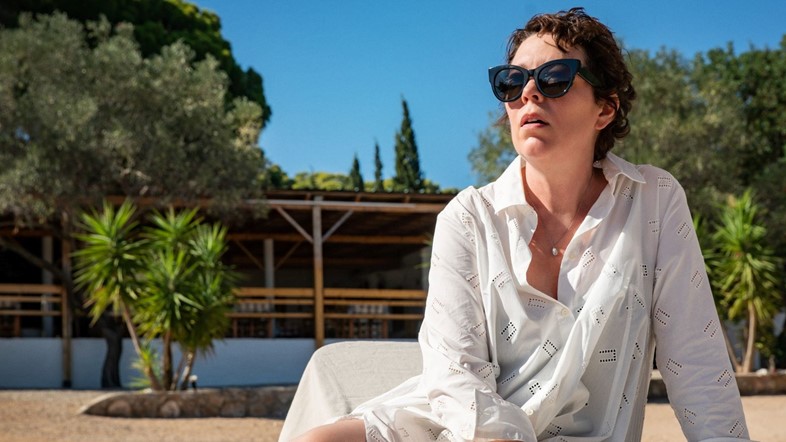
The Lost Daughter (Maggie Gyllenhaal, 2021)
The great Maggie Gyllenhaal aces her first outing as director with The Lost Daughter, a pleasingly tart adaptation of Eleanor Ferrante’s novel about an English professor whose holiday is thrown into turmoil by the arrival of an abrasive Greek-American family. Olivia Colman has fun playing mildly against type as the spiky lead, while Jessie Buckley plays the professor’s younger self in a series of flashbacks that tug at lingering taboos around motherhood. Paul Mescal pops up as the eye-candy, too – a plus, if ever there was one. Read our interview with Gyllenhaal about the film here.
Stutz (Jonah Hill, 2022)
If, like me, you were always of the opinion that what happens between Jonah Hill and his therapist should stay between Jonah Hill and his therapist, Stutz might just be the film to change your mind. At the start of his surprise-hit documentary for Netflix, the Superbad star sings the praises of his shrink, Dr Phil Stutz, before outlining his reasons for making the film – basically, he wants to share Stutz’s ideas for the benefit of the wider world. But things get weird when Hill’s desire for transparency pushes the film in increasingly meta directions, and an unexpected love story starts to emerge.

An Easy Girl (Rebecca Zlotowski, 2019)
Zahia Dehar was caught up in a major scandal in 2009, when she was solicited as an underage prostitute by members of the French national football team. In this Cannes-set coming-of-ager she plays Sofia, a sexually liberated 20-something whose hedonistic lifestyle draws her cousin, Naïma (Mina Farid), into a world of fabulous wealth and easy virtue. It’s an ingenious bit of casting that gives director Rebecca Zlotowski free rein to explore ideas about sex, commerce and feminism in contemporary France.
The Stranger (Thomas M Wright, 2022)
Thomas M Wright’s second film as director draws on the real-life story of Daniel Morcombe, the 13-year-old boy abducted from a bus stop near his Queensland home in 2003, and the elaborate sting operation used to bring his killer to justice. Favouring mood and texture over melodrama – the discordant score from Mica Levi collaborator Oliver Coates tells you where his head is at – Wright gets terrific performances from his leads, Sean Harris and Joel Edgerton, in this unsettling thriller.
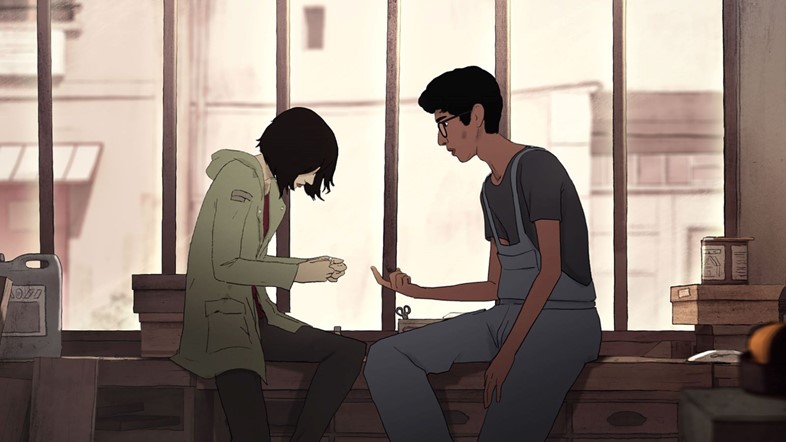
I Lost My Body (Jérémy Clapin, 2019)
This bizarrely poetic work from French animator Jérémy Clapin offers a coming-of-age story with a twist – the ‘I’ of the title refers to a severed hand risking life and, er, just life trying to make its way back to its owner. Through a series of flashbacks, we discover the story of Naoufel, a shy Moroccan teen sent to live with his uncle in France after he is orphaned during childhood. There, he finds himself drawn to a young librarian, Gabrielle: is it fate that brought them together? And just where did he put that hand?
The Two Popes (Fernando Meirelles, 2019)
Raise a glass to the late Pope Benedict XVI – or not – with this surprisingly funny, philosophical drama from City of God director Fernando Meirelles, released a few years back but sadly underseen. At its heart is the strange tango between conservative pope Benedict (a God-tier turn from Anthony Hopkins) and future ‘People’s’ Pope Francis (Jonathan Pryce), whose odd-couple relationship comes into focus when the latter tries to resign over the Vatican leaks scandal.
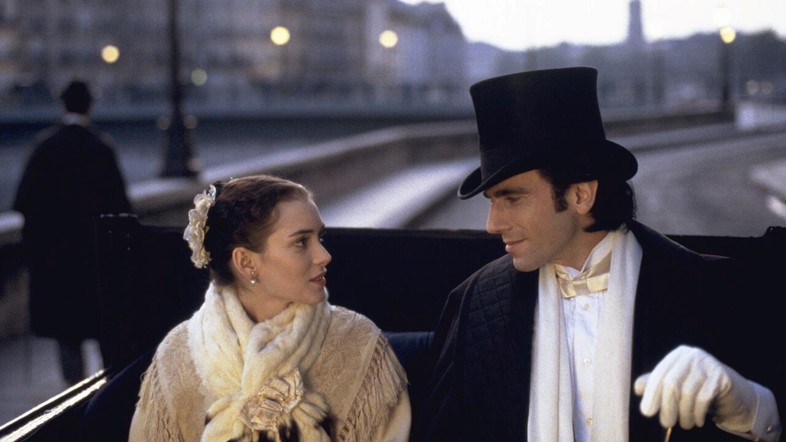
The Age of Innocence (Martin Scorsese, 1993)
The ‘Fleabag-ification’ of the period drama shows no signs of abating, but there’s a distinct lack of sassy fourth wall-breaking in Martin Scorsese’s sumptuous tale of Gilded Age passions, adapted from Edith Wharton’s classic novel. The performances are a mixed bag – Winona Ryder seems miscast; Daniel Day-Lewis is better when not required to stand around looking hunky in a leading-man sort of way – but a quietly knockout script makes this a lesser-known gem in the master’s back catalogue worth seeking out.
I Am Not a Witch (Rungano Nyoni, 2017)
This unexpected story from director Rungano Nyoni concerns the tragic plight of Shuna, an orphaned Zambian child shopped to the police by villagers as a witch. She is sent to a ‘witch camp’ where women restrained with ribbons – so they don’t fly away, naturally – are forced into labour, before a local government official decides to exploit her for her ‘gifts’. The subject matter may be heavy, but Nyoni brings absurdist style and humour to this story based on real-life injustices, like Aki Kaurismäki directing a ‘social problem film’. Read our interview with Nyoni about the film here.
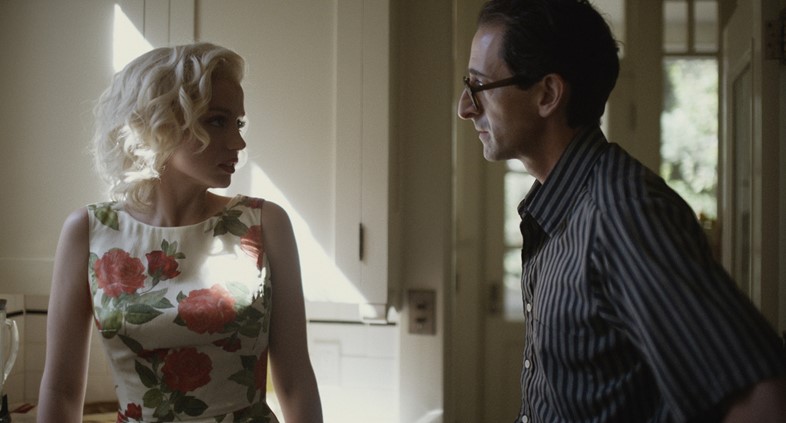
Blonde (Andrew Dominik, 2022)
Andrew Dominik’s fictionalised take on the life of Marilyn Monroe has been panned as crass, insensitive and tasteless, but it also has its fair share of defenders – the never-not problematic Paul Schrader, for one, and Nick Cave, who called it his favourite film of all time. What’s not in doubt is that Dominik is a director with serious chops and past form probing the dark underbelly of American iconography (Killing Them Softly) and celebrity culture (The Assassination of Jesse James by the Coward Robert Ford), which, alongside Ana de Armas’ performance, make Blonde worthy of a fair hearing. Read our interview with Blonde author Joyce Carol Oates here, our print profile of de Armas here, and our interview with the film’s costume designer Jennifer Johnson here.
Lawrence of Arabia (David Lean, 1962)
Its skittishness on the subject of empire may have seen it booted from the Sight & Sound greatest films poll last December, but David Lean’s biographical drama on the life of TE Lawrence remains an incredible feat of epic filmmaking, a fascinating study in divided loyalties and the degrading effects of war powered by Peter O’Toole’s electric performance.
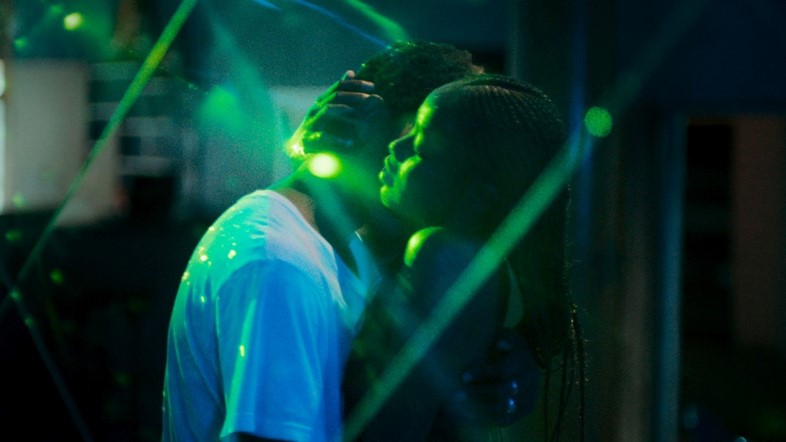
Atlantics (Mati Diop, 2019)
Mati Diop’s transfixing debut is a ghost story set on the streets of Dakar, where the wives of migrant workers lost to the sea take their revenge on the capitalists who helped seal their fate. What spirits have these women been possessed by? Diop’s film casts an unsettling spell that should appeal to fans of slow-cinema master Apichatpong Weerasethakul’s Uncle Boonmee and His Past Lives.
The Killing of a Sacred Deer (Yorgos Lanthimos, 2017)
Colin Farrell and Barry Keoghan’s odd-couple chemistry bagged them a pair of Oscar nominations in The Banshees of Inisherin, but their bromance – if you can call it that – began with The Killing of a Sacred Deer. Yorgos Lanthimos’s film sees the two actors locked in a terrifying battle of wills over a shocking act of negligence from Farrell’s past, in this gleefully nasty, deadpan riff on the home-invasion thrillers of 90s Hollywood.
